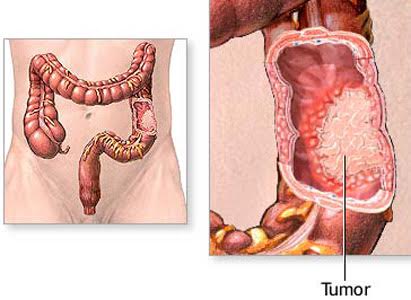- Home
- Editorial
- News
- Practice Guidelines
- Anesthesiology Guidelines
- Cancer Guidelines
- Cardiac Sciences Guidelines
- Critical Care Guidelines
- Dentistry Guidelines
- Dermatology Guidelines
- Diabetes and Endo Guidelines
- Diagnostics Guidelines
- ENT Guidelines
- Featured Practice Guidelines
- Gastroenterology Guidelines
- Geriatrics Guidelines
- Medicine Guidelines
- Nephrology Guidelines
- Neurosciences Guidelines
- Obs and Gynae Guidelines
- Ophthalmology Guidelines
- Orthopaedics Guidelines
- Paediatrics Guidelines
- Psychiatry Guidelines
- Pulmonology Guidelines
- Radiology Guidelines
- Surgery Guidelines
- Urology Guidelines
Fatty diet may increase risk of intestinal tumour

New York : Specific types of high-fat diets based on corn or coconut oils like those found in certain salad dressings and ice cream may increase risk of tumour formation in intestinal cancer, finds a study.
A high-fat-diet-induced immune reaction causes inflammation leading to intestinal cancer even if one is not obese, suggested the study.
“We found that specific types of high-fat diets are associated with increased tumour formation in a mouse model of intestinal cancer,” said John Lambris, researcher at the University of Pennsylvania in the study published in the journal Molecular Cancer Research.
“This observation led us to our first important conclusion that diet, but not necessarily obesity, can promote intestinal cancer,” said Edimara Reis, researcher at the University of Pennsylvania.
This model is particularly interesting because it resembles human familial adenomatous polyposis, a condition that carries an 80 per cent risk of developing colorectal cancer in individuals with mutations in a tumour suppressor gene called Apc, the study suggested.
The researchers, for the study, used a mice model and found that increased tumour formation was associated with mice fed corn or coconut fats, mice that fed diets which consisted olive oil as a source of fat did not develop intestinal polyps, despite being obese.
The team concluded that a high-fat diet (rather than metabolic status) and the chemical composition of the diet are the most important factors for determining cancer risk.
According to the researchers, the results clearly showed that eating a high-fat diet is sufficient to increase cancer risk, regardless of obesity.
The team also noted that tumour formation was caused by inflammation induced by corn and coconut based diets. Notably, inflammation and intestinal tumours in mice were triggered very soon three days after being fed these high-fat diets.

Disclaimer: This site is primarily intended for healthcare professionals. Any content/information on this website does not replace the advice of medical and/or health professionals and should not be construed as medical/diagnostic advice/endorsement or prescription. Use of this site is subject to our terms of use, privacy policy, advertisement policy. © 2020 Minerva Medical Treatment Pvt Ltd